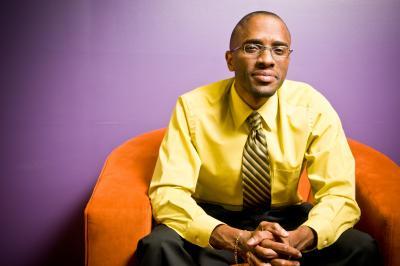Rap and Urban Students' Education

America's urban schools offer an unusually candid perspective on our academic and social cultures. Can educators and their students work together in this changing climate to define a new school reality?
I taught my first high school class in Selma, Ala., in 1995.
Selma has always been a small, rural town deep in the heart of Dixie. But civil rights veterans and local folks alike look at the Southern outpost as hallowed ground. It’s there, after all, where Bernard Lafayette almost lost his life in his campaign for voting rights. John Lewis and Martin Luther King, Jr. started their marches to Montgomery in Selma’s Brown Chapel.
Selma, and other predominantly black towns across the South, gave African-Americans a platform on which civil rights legislation would be built. It’s where our voices were unified as one, where our long-delayed march toward equality would begin anew.
So when I stepped in my Selma High School classroom almost 30 years later, I wasn’t surprised to see that the restless spirit that was such part a part of the 1960s had been passed on to a new crop of African-American youth. I had experienced it myself as a young black man. But though we’ve made significant strides in overcoming racial barriers, these students are still more aware of society’s view of them with regard to race than their counterparts.
That's abundantly clear in some of the nation's largest cities where, today, students are influenced by a hip-hop culture that grew from our struggles but now knows few cultural and socio-economic boundaries. The musical breakthrough gained popularity through the likes of Run DMC, Public Enemy, Queen Latifah, Tupac, Snoop Dogg and more recently P. Diddy, Lil Wayne, Jay-Z and Drake. It has transcended musical boundaries and now impacts speech, clothing, mannerisms, movies, Web sites, television programming,magazines and even energy drinks.
In short, it’s a powerful subculture for African-American youth and many other young people today.
And it’s a cultural force that has created an unhealthy divide in our nation’s urban schools. The reason is simple: Hip-hop culture is, and always has been, characterized by diversity, change, flux, improvisation and creativity. These are all healthy attributes. But most American schools are rigid, stagnant and slow to change. The problem facing our inner cities now may not be that the schools are so much failing, but rather that some of the teaching strategies have become obsolete.
Educators have a critical role to play in urban students’ academic and social development. First, we must recognize the inherent inequities within our society and how they impact people. Second—but just as important—we must realize how cultural collisions play out in our schools. By acknowledging the background experiences of urban students, educators can gain insight into addressing student behavior, toward equality communication and values—character traits heavily influenced by contemporary hip-hop culture. We must make more of an attempt to understand its history and proliferation, clarify its negative aspects for students and channel its power in positive ways to enhance students’ classroom experience.
It’s a difficult task.
Urban school leaders battle issues no one should be asked to address. Inadequate funding and teacher detachment illustrate a lack of investment in students’ futures— a (mis)perception that fuels student apathy. That passivity can be aggravated by external pressures of gang violence, drugs and alcohol, domestic conflicts and depression. And when young African-American children turn on the television only to see the media promulgate the myth that hip-hop increases social misery by only promoting violence, drug use, salacious sexual and realize the subsequent effect on youth identity. Educators must help such students develop the kinds of value systems that encourage positive self-identities and give them the legitimate opportunity to become successful in school as well as in life.
Students who develop a strong positive value system have less of a chance to be affected by negative aspects of hip-hop culture and more of a chance to be influenced by the “positivity” exemplified by a healthy school culture. At our core, educators are role models—roles we too often forget or are unwilling to accept.
By Dr. Floyd Beachum, Bennett Professor of Urban School Leadership